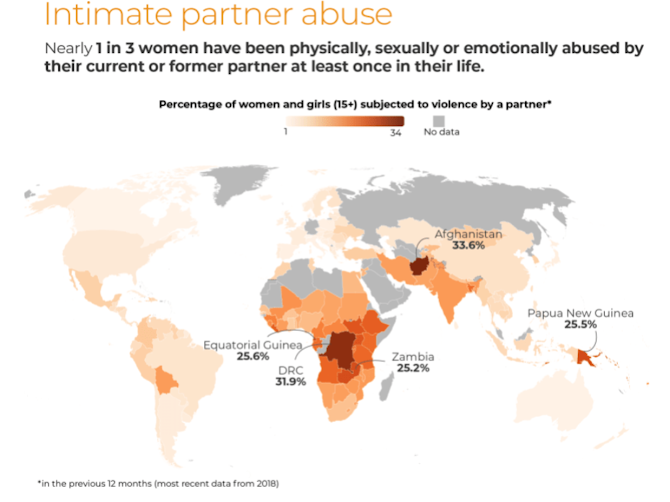#2 Water and violence against women
Today's topic is a big and triggering one: violence against women. While this topic will come up in other posts, I thought it was necessary to dedicate an entire post to it specifically due to its devastating impacts.
The link between water and sexual assault
When girls and women go out to collect water alone, or defecate out in the open, or use unsafe and/or communal latrines (especially in the evening - which happens often if they have been busy with other household duties), they are left particularly vulnerable to sexual predators. As analyses of Turkana County, Kenya, demonstrate (where 72% of the population openly defecates), the intimacies, logistics and bodily complications of 'using the toilet' are a bigger issue for women than for men as they are physically left more exposed.
Therefore, vulnerable women have typically been the target of sexual assaulters, and the poorer the access to safe WASH, the more likely women will find themselves in these positions. Indeed, it has been argued that in the South African township of Khayelitsha, the combined annual social costs of sexual assaults linked to lack of toilets was of US$40 million, highlighting the damaging realities that a lack of WASH can create due to the resulting sexual violence. Another element to note is that of intimate partner violence, as women are at a higher risk of being abused if meteorological conditions or personal difficulties mean they are unable to collect water. Although Figure 1 below is not specifically concerning water-collection issues, they certainly take up a significant proportion of cases, particularly in sub-Saharan Africa where collection is the hardest.
The impact of violence on education levels
As we will talk about continuously throughout this blog, women's access to education is significantly hindered by water. Young girls' water collection duties in sub-Saharan Africa already take time off from attending school, or prevent attendance altogether in the worst of cases. For example, for many girls in Gabarin, a village in Nigeria's state of Bauchi, water collection duties mean that on average girls only arrive at school by break-time. Additionally, the realities of sexual assault worsen this problem. Charity: Water studied the realities of girls collecting water in Uganda, and their study told the life of children and sisters Grace and Sarah, who live in a rural village in the Namayingo district and who collect water near Lake Victoria. They both fell pregnant after being raped when going out to collect water alone. Due to the stigmas of being pregnant and unmarried (which add cultural baggage to the issue), they both had to drop out of school at a very, very young age.
The KASA! initiative from the African Women's Development Bank has been fundamental in spreading awareness and helping victims of violence in West Africa (see Figure 2). The story of Grace and Sarah is just one of millions that demonstrates the harsh reality: sexual assault linked to water inequalities is particularly terrible because it can have lasting impacts on girls' education and, subsequently, their socio-economic opportunities throughout life.
 |
Figure 2: KASA! initiative event in Tamale, 2022 |

I really enjoyed reading this blog! Like you stated, violence against women is such a crucial issue and its a topic which comes up again and again in gendered discourse, so it's great you made a whole post dedicated to this topic. I particularly liked the story of Grace and Sarah as it enabled me to understand the topic at a much deeper and personal level. Do you think gendered violence is something that can be prevented or improved in the future?
ReplyDeleteThank you so much for your comment Kavitri! Yes, the Grace and Sarah story had a similar effect on me. I think gendered violence is a deeply routed issue in our society, so it would take thorough systemic change for it to go away, and it may never will. Nevertheless, I definitely think it can be improved, and in the case of WASH access, many instances of assault could be prevented altogether if issues like open defecation continue to be addressed in WASH interventions.
Delete